
No homestead feels complete without a flock of chickens. Whether you live out in the country or own a quarter-acre lot in the city, there’s a good chance you’ve considered adding some feathered fowl to the landscape.
But what if you want to make your birds more than backyard pets?
It turns out there are tons of ways to get your poultry to pay for itself, and maybe even turn a profit.
If you’re ready to make your flock work for you, keep reading to learn about 14 ways to make money with chickens on the homestead.
1. Sell Fresh Eggs
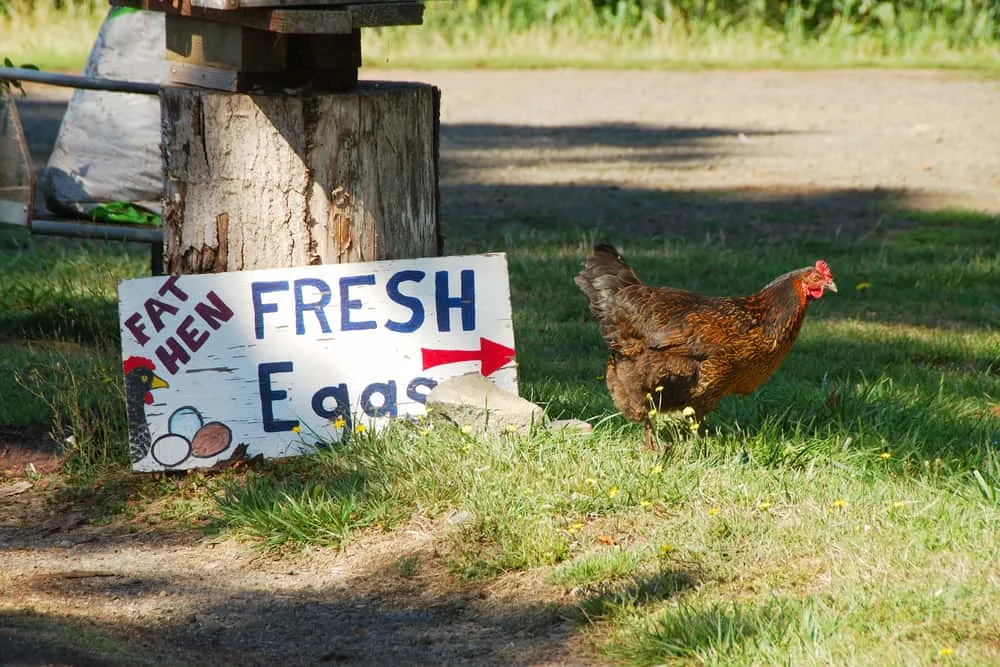
Fresh eggs are one of the best parts of keeping chickens, and there’s a good chance that your birdless neighbors would love to reap the benefits. Put up a “fresh eggs” sign at the end of your driveway, and with a little luck, your eggs will soon sell themselves.
Setting prices for fresh eggs can be tricky, but many backyard chicken owners make the mistake of trying to compete with supermarket prices.
You’re selling a completely different product than those pale yolked eggs, so don’t apologize for setting your prices higher to reflect that.
Be sure you make it clear how interested buyers can get your eggs. You might want them to come up to the house, or direct them to a fridge in the garage. If you’re feeling especially trusting, it’s also possible to put a cooler near the driveway with a secure cashbox on site.
You’ll also save on overhead costs if you use recycled egg cartons. Ask friends and family to save theirs for you so that you can sell from them.
And if you want to boost your profits, you’ll want more eggs. Have a read of our article sharing seven ways to get your chickens to lay more eggs here.
2. Sell Fertilized Eggs
There’s a lot of people eager to get into raising their own chickens, and few things are more inspiring than getting to hatch your eggs.
If you have a rooster on-site, you can sell fertilized eggs to anyone who owns an incubator or a broody hen.
While it might be hard to sell the fertilized eggs from standard breeds for more than what you charge for fresh ones, specialty breeds command far higher prices. Depending on your market, you might be able to make more than $4 per egg.
3. Sell Day-Old Chicks
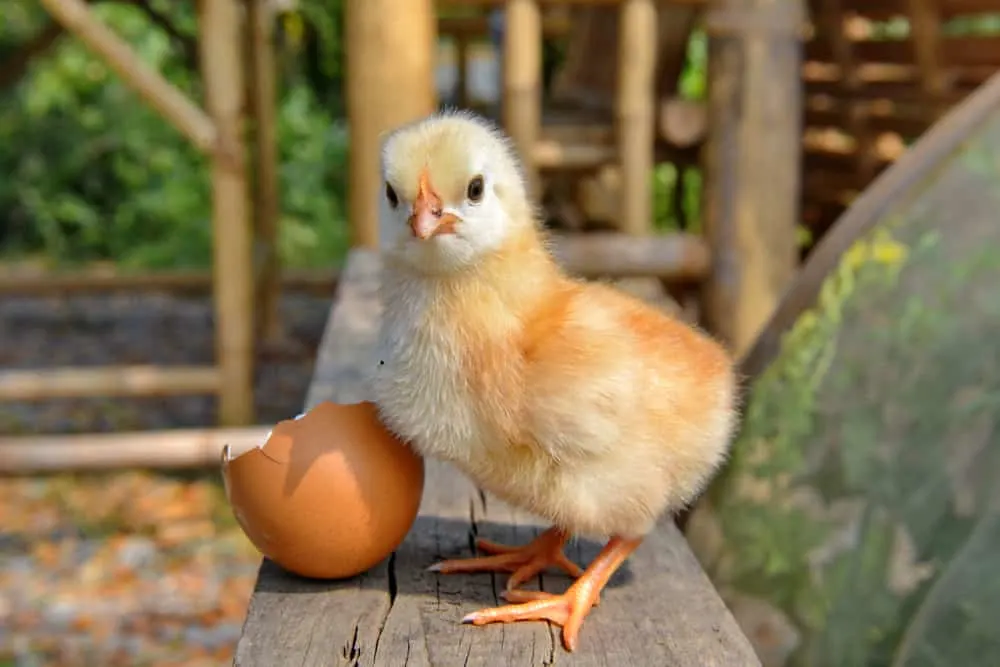
Many people want the fun of raising baby chicks without the hassle of hatching them out of eggs. Find these people, and you can sell them day-old chicks at a tidy profit.
Spring is a popular time for buying chicks, but don’t discount the benefits of selling in early autumn as well. That’s when people are evaluating their bird losses from the summer and are eager to restock their flocks.
Plan to sell your chicks for a few dollars each if they are a common breed and a straight run (meaning that they aren’t sexed). If you can guarantee the gender of your birds, you can sell them for more. Just keep in mind that with this approach you’ll likely be left with a lot of roosters you’ll need to deal with.
While it’s possible to let broody hens do all the work for getting you baby chicks, you’ll better be able to standardize the process by using an automatic egg incubator. This lets you plan for precisely when the eggs will hatch so you can sell them right away and not waste money on feed and electricity for their heat lamps.
4. Sell Pullets
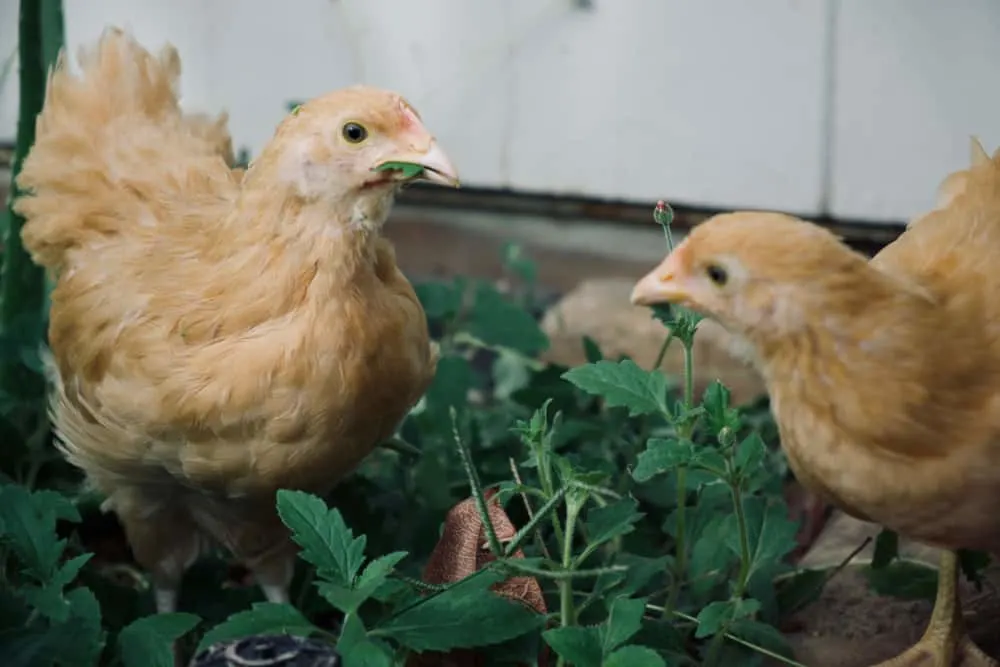
For those who want to keep their baby chicks on the homestead for a few extra weeks, it’s worth considering selling pullets for profit. Pullets are defined as hens, usually under a year old, that are just about mature enough to start laying eggs.
Selling birds at this age makes it easy to determine their genders, and it saves the buyers from having to wait months before getting fresh eggs. It also benefits the buyer because they don’t need to invest in a setup for chicks.
This means you can charge more per bird to pay for the convenience and your time. The going rate will vary based on your breed and where you live, but expect to make $15-$35 per bird you sell.
5. Sell Stewing Hens
Chickens only lay at their peak for a few years. After that, you’re throwing money away by keeping them around. The good news is there’s money to be made selling older hens for stew. While their meat won’t be as tender as you’d get with meat birds, they offer an excellent bargain for anyone who wants to be more intentional about where their meat comes from.
Consider pricing your old hens at $3-$5 each, and you’ll likely make some money both from the sale and the savings in feed costs.
6. Sell Meat Birds
There’s nothing better than pasture-raised chicken, and once you have a taste, it’s hard to go back to grocery store birds. That means there’s a big market for high-quality chicken, so you can make money by raising and selling broilers.
Best of all, you’ll start seeing a return on your investment quickly as the birds take just eight weeks to reach butchering weight.
The regulations for selling meat from home vary by region, so do your research ahead of time to learn whether it’s legal to sell home-butchered meat birds.
If not, consider sending your birds to a professional processing plant. Your customers can even pick them up there if they prefer. Another way to get around this loophole is to sell the birds live so that the buyer can process them at home.
Make it clear to potential shoppers how your birds were raised. If they ate organic diets and lived on pasture, you can usually command a high price per pound.
7. Raise and Sell Guinea Fowl
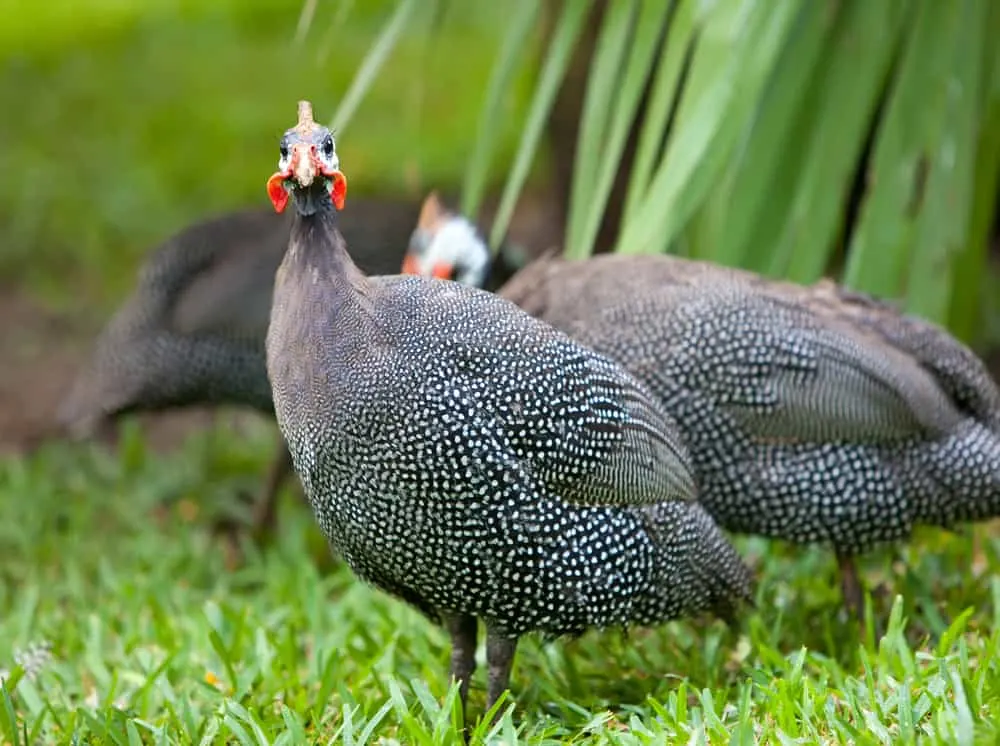
When it comes to making money off backyard birds, it’s worth looking beyond chickens. Many people are intrigued by other species, and you can make money selling chicks, meat, and even their feathers.
Guinea fowl are a great option for expanding the flock.
They can be kept with chickens and earn their keep by acting as alarm bells and tick control.
If you’re looking to make money selling guinea fowl keets, consider investing in good breeding stock for multiple color variations. This ensures you offer different options than what people could purchase from their local feed store.
8. Sell Ornamental Feathers
Once you start paying attention to the wide world of heritage chicken breeds, you’ll be amazed by the variety of styles and colors their feathers come in- especially the roosters.
Many crafters love putting them to use, so consider scoping out the floor of the chicken coop during molting season for feathers worthy of Etsy.
If you want some inspiration for your own projects, The Free Range Life shares how to make gorgeous guinea fowl feather earrings.
You can market to a different crowd by selling quality tail feathers to fly fishermen who turn them into lures.
9. Sell Chicken Manure
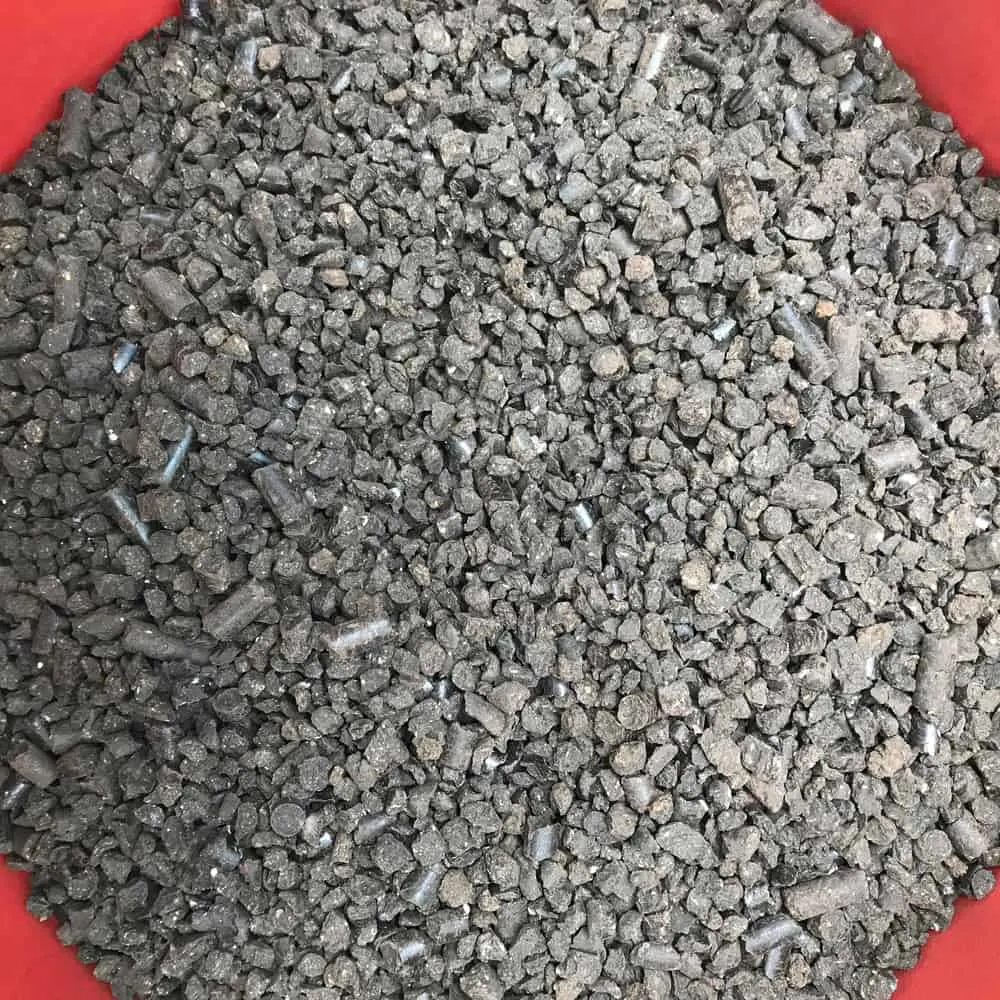
Black gold is another name for chicken manure, and for a good reason. This natural soil amendment is sky-high in nitrogen, and once aged for a few weeks, offers tremendous value for growing plants.
Gather up what collects under chicken roosts, and you can sell it to the organic gardeners nearby.
10. Make Homemade Chicken Feed
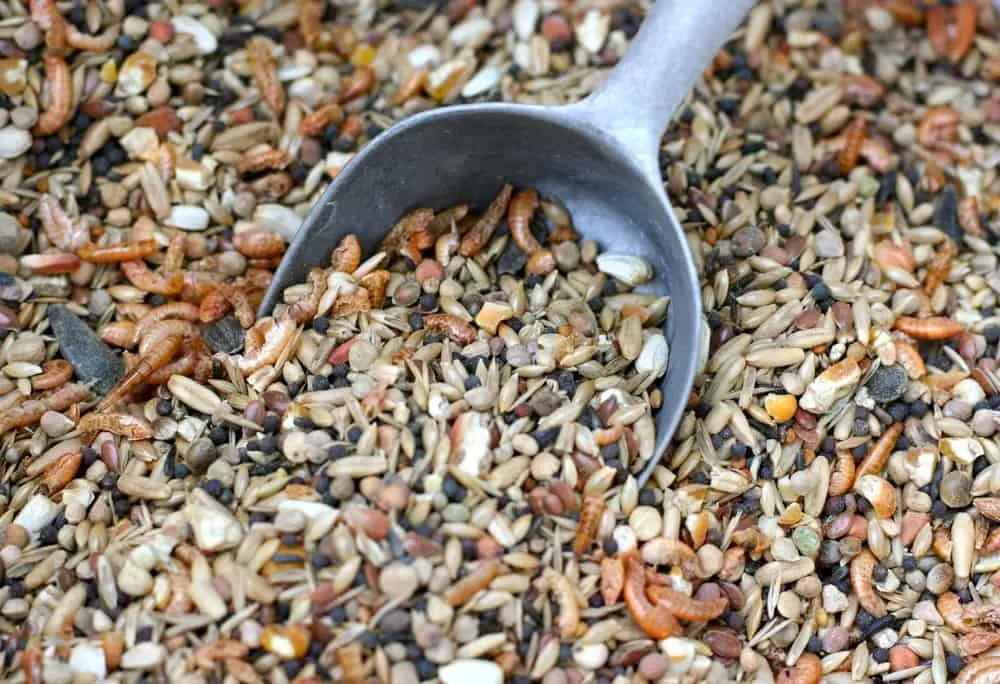
Commercial chicken feed is expensive, and many people question its quality. If you have a stellar recipe you feed your own flock, consider turning it into a home business by bagging it and selling it to others.
This can extend to other chicken treats and toys. People love to spoil their pets, so use your creativity to develop a product both birds and owners will love.
11. Sell Show Birds at Auction
For those interested in raising show birds, there’s money to be made from selling birds at auction.
While poultry auctions can be hit or miss, they can also be a great place to score some deals on new birds. Consider going to auction if you have a large number of birds you want to move on quickly. Otherwise, you’re likely to make more money selling to individuals.
12. Write About Chickens Online
Do you have a way with words? Make your chicken hobby work for you by writing about it.
Whether you monetize a small blog about your chicken’s adventures or write how-to guides for WikiHow or other paid websites, there’s likely a market for your chicken expertise.
13. Make and Sell Chicken Coops

Maybe you’re good with your hands and looking to profit off other people’s interest in raising chickens. If so, you might make money building and selling homemade chicken coops.
There’s a real market for cute coops that match people’s homes, so offering custom-built coops provides an option chicken lovers can’t find elsewhere. If you tap into the right market, you can sell homemade coops for hundreds of dollars each.
14. Rent Chicks to Educational Centers
Do you live close to a 4H club or primary school? Consider reaching out to see whether you can rent an incubator to them.
Small kids love chickens, and watching them hatch in the classroom can be a magical experience. This will save the school the cost of buying their own equipment, and you’ll pocket from profit from the supplies you already own that may otherwise sit unused.
Use Your Creativity to Raise Chickens for Money
Raising chickens on the homestead is rewarding, but you’ll get even more benefits if you can make money in the process.
Consider following these tips for making money with chickens on the homestead, and you’ll start to feel rich in more ways than one.
Save Money Raising Chickens
This article has shared the many ways you can generate income from your backyard chickens; but as the saying goes:
“Income is vanity, profit is sanity”
And since profit is the result of your turnover minus your expenses, it makes sense to get a handle on your costs too.
Take a look at our article revealing how to save money on your flock below:
Read Next: Raising Chickens On A Dime: 14 Ways To Save Money On Your Flock
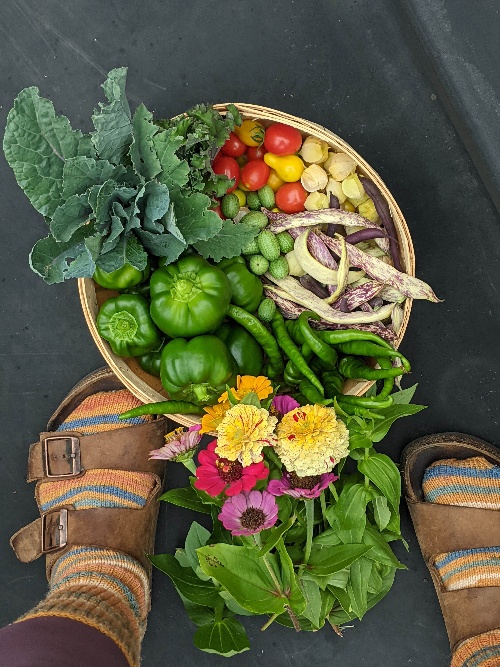
Get the famous Rural Sprout newsletter delivered to your inbox.
Including Sunday ramblings from our editor, Tracey, as well as “What’s Up Wednesday” our roundup of what’s in season and new article updates and alerts.

